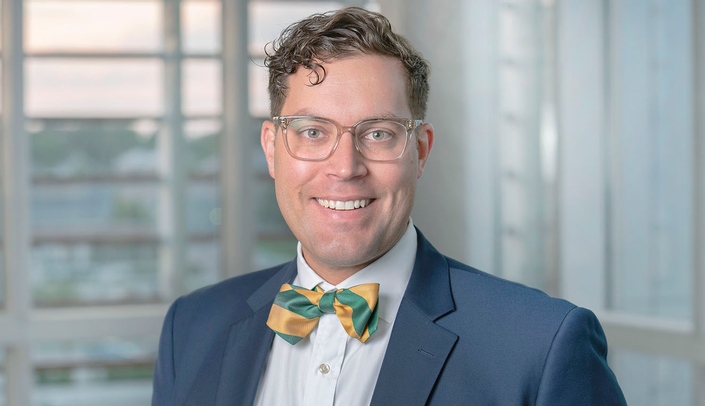A large amount of research information is available about the health care needs of groups identifying as lesbian, gay, bisexual, transgender and/or queer (LGBTQ). But a gap exists because many epidemiological studies focus on sexual orientation rather than gender identity/incongruence.
To address the lack of specific data from transgender and gender diverse individuals, UNMC and University of Nebraska at Omaha researchers designed and deployed a survey to assess the gender-affirming physical, mental and social care needs of current patients.
Data was collected through a survey of transgender and gender non-conforming patients at Nebraska Medicine.
In the study, "Integrated Comprehensive Care for Transcare and Gender Diverse Clinic Patients: An Assessment of Physical, Mental, and Social Needs," patients were asked about their health care needs and what needs were being met and what services were needed.
Sean Figy, MD, assistant professor in the UNMC Department of Surgery and one of the study’s authors, said this study gives health care professionals a baseline idea of the needs that the trans community has self-identified as being most important.
"While most different types of services are available at the medical center, access is an issue because the supply is not meeting the demand. Assessing the needs of the community is an important step in filling the voids in care. Transgender and gender non-conforming patients are at high risk for health inequity and poor outcomes. This study will help us start to correct that."
Dr. Figy said he and his colleagues will use the data to preferentially build out portions of the program that have higher need to fill those voids first.
The study was funded internally and included UNMC authors Kristy Carlson, PhD, Jayme Dowdall MD, N. Jean Amoura, MD, and Jay Irwin, PhD, associate professor of sociology at UNO.

This is so wonderful! I hope other University Hospitals follow their lead!
This is important work. Thank you for this research that will increase our understanding of the health care needs of people in the LGBTQ community.
Thank you for this important work, Dr. Figy!